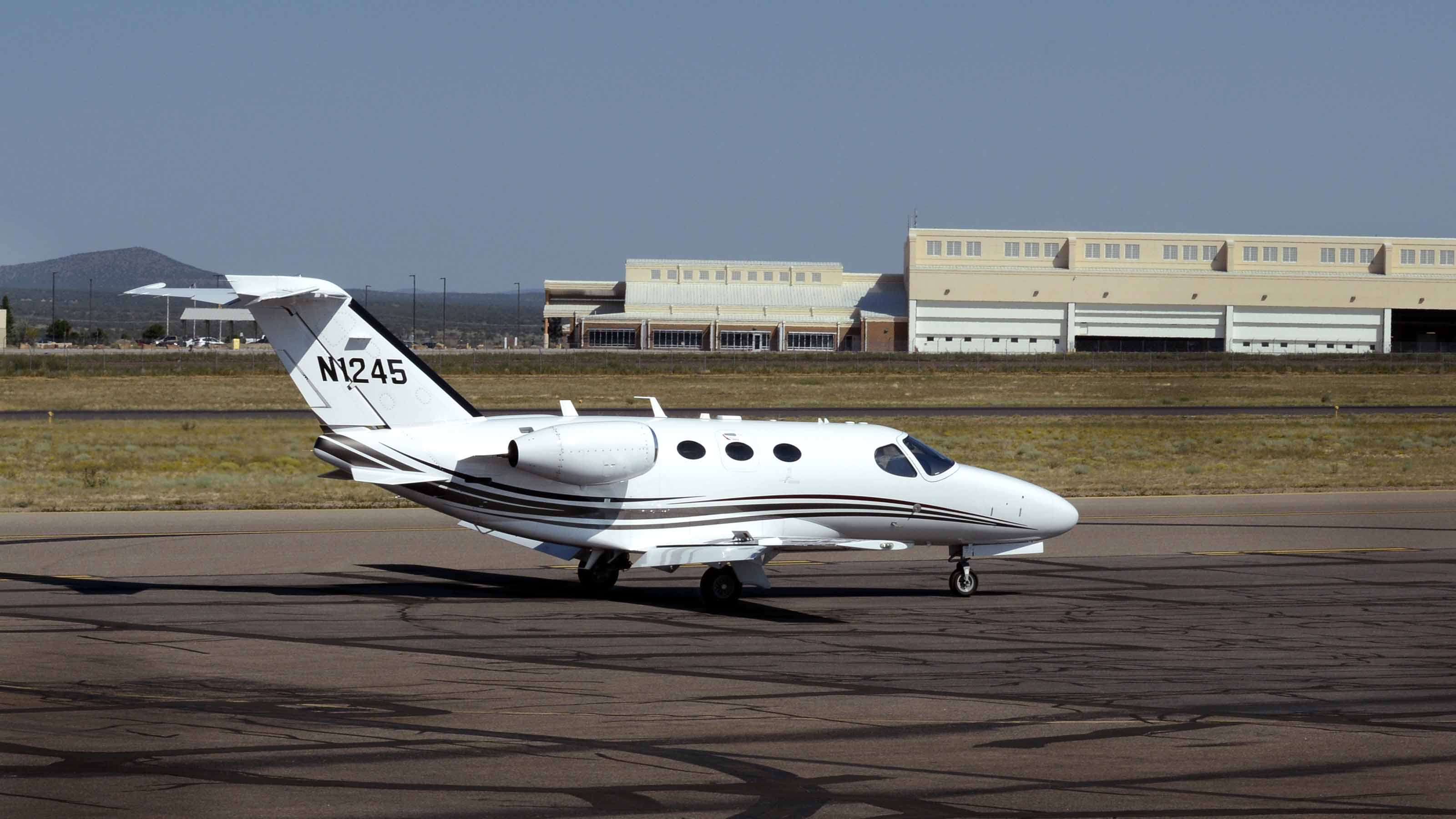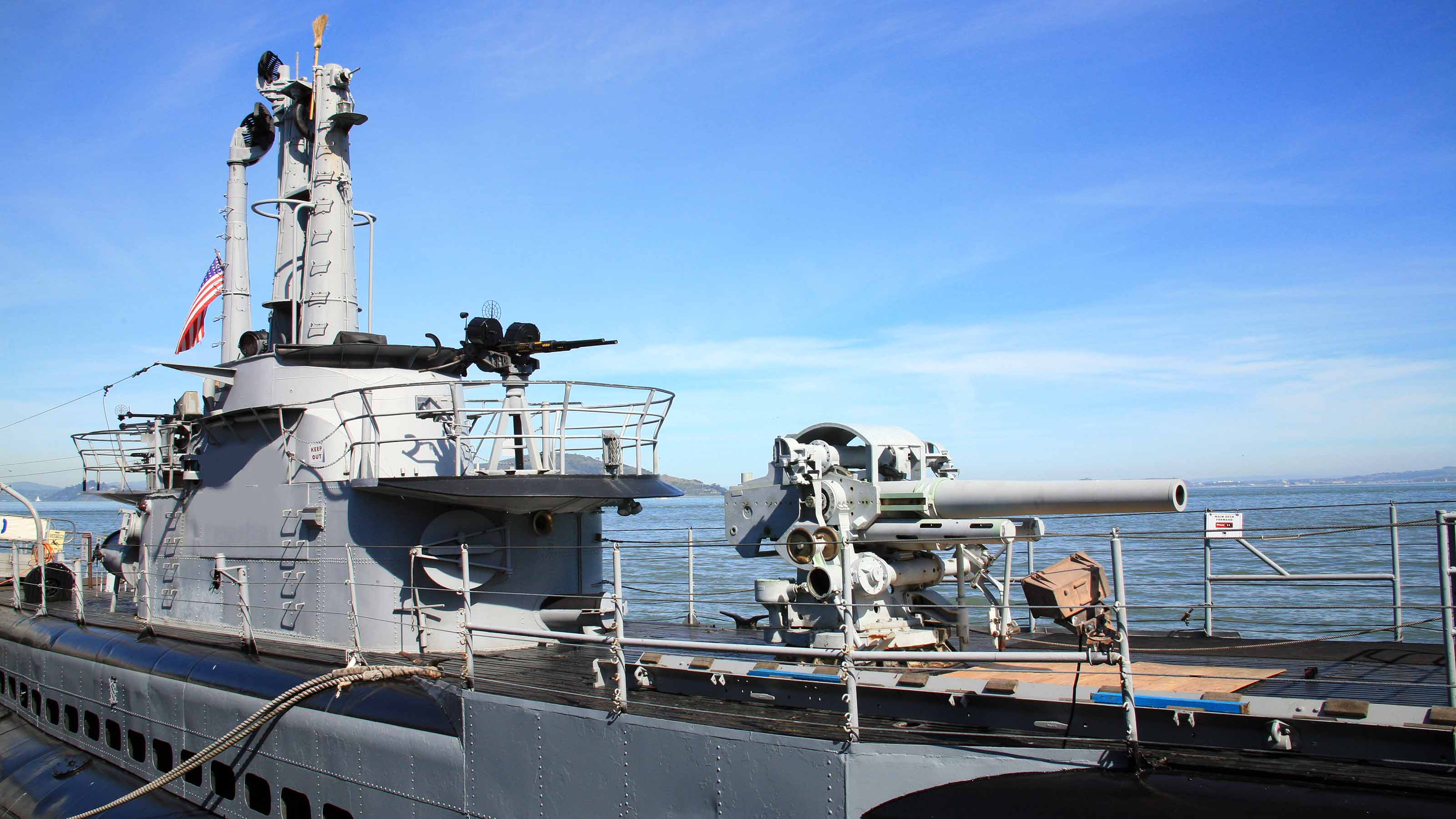7 Defense Stocks to Buy as Geopolitical Risks Rise
The war in Ukraine is sparking accelerated spending across the defense industry. These top-rated stocks could capitalize on the growth.


Profit and prosper with the best of Kiplinger's advice on investing, taxes, retirement, personal finance and much more. Delivered daily. Enter your email in the box and click Sign Me Up.
You are now subscribed
Your newsletter sign-up was successful
Want to add more newsletters?

Delivered daily
Kiplinger Today
Profit and prosper with the best of Kiplinger's advice on investing, taxes, retirement, personal finance and much more delivered daily. Smart money moves start here.

Sent five days a week
Kiplinger A Step Ahead
Get practical help to make better financial decisions in your everyday life, from spending to savings on top deals.

Delivered daily
Kiplinger Closing Bell
Get today's biggest financial and investing headlines delivered to your inbox every day the U.S. stock market is open.

Sent twice a week
Kiplinger Adviser Intel
Financial pros across the country share best practices and fresh tactics to preserve and grow your wealth.

Delivered weekly
Kiplinger Tax Tips
Trim your federal and state tax bills with practical tax-planning and tax-cutting strategies.

Sent twice a week
Kiplinger Retirement Tips
Your twice-a-week guide to planning and enjoying a financially secure and richly rewarding retirement

Sent bimonthly.
Kiplinger Adviser Angle
Insights for advisers, wealth managers and other financial professionals.

Sent twice a week
Kiplinger Investing Weekly
Your twice-a-week roundup of promising stocks, funds, companies and industries you should consider, ones you should avoid, and why.

Sent weekly for six weeks
Kiplinger Invest for Retirement
Your step-by-step six-part series on how to invest for retirement, from devising a successful strategy to exactly which investments to choose.
Russia's invasion of Ukraine has, among other things, unsettled much of the stock market. However, one corner of the market has experienced a lift as a result, and stands to keep benefiting should this conflict continue or other geopolitical risks rise: defense stocks.
"Even before the Russia and Ukraine conflict became front-page news, there was a clear shift in military spending aimed at thwarting potential near-peer threats," says Stifel analyst Bert Subin.
Indeed, the fiscal 2022 omnibus spending bill signed into law by President Joe Biden in mid-March includes $728.5 billion for defense – a 4.7% increase over fiscal 2021 – as well as $13.1 billion for humanitarian, military and economic assistance to Ukraine. And Biden's fiscal 2023 budget earmarks another $813 billion for defense spending.
In addition to these catalysts, defense stocks might be even more compelling in the face of a possible economic slowdown as the Federal Reserve kicks off its first rate-hiking cycle in years. Unlike other areas of the market, the defense industry has a steady and reliable revenue source in the U.S. government.
With that in mind, here are seven of the best defense stocks poised to benefit from this spending build. This includes some familiar names as well as some under-the-radar picks – and each stock is well-liked by the analyst community, sporting consensus Buy or Strong Buy ratings.
Data is as of March 29. Dividend yields are calculated by annualizing the most recent payout and dividing by the share price.

Vectrus
- Market value: $421.3 million
- Dividend yield: N/A
- Analysts' consensus recommendation: 2.00 (Buy)
Wherever American troops are around the world, Vectrus (VEC, $35.69) is likely there as well.
The company manages U.S. military bases and facilities around the world, providing supply chain and logistics, information technology support, engineering, security and other services. In mid-2021, it built a 250,000-square-foot facility (Freedom Village) in 45 days to house thousands of Afghan refugees.
Vectrus mainly operates as a prime defense contractor ̶ not subcontractor ̶ meaning it works directly with the government on a contractual basis. Looking at its client base, the U.S. Army, Air Force and Navy are its main customers and comprised about 91% of VEC's total revenue in 2021.
Geographically, the Middle East made up 56% of VEC's revenue last year 2021, with 32% coming from the U.S. and 8% from Europe.
The company ended 2021 with a total backlog of $5 billion, while its funded backlog was $1 billion.
Vectrus is forecasting mid-point revenue growth of 3.1% for fiscal 2022 and earnings per share (EPS) growth of 1%. The company is also expected to merge with privately held Vertex in the third quarter of this year and the combined firm is expected to achieve roughly $20 million in annual pre-tax cost synergies.
The new company name will be announced upon closing and will continue to trade publicly on the New York Stock Exchange (NYSE).
Stifel analyst Bert Subin recently resumed covering on VEC with a Hold rating, saying it remains a "show-me-story" amid the merger with Vertex. "Over time, however, we expect the deal will help Vectrus remove the cloud of recompete risk while boosting the company's margin profile," he writes in a note. "In light of this uncertainty, we remain on the sidelines despite a favorable valuation."
Indeed, VEC is currently trading at 7.3x forward earnings, well below the S&P 500's forward price-to-earnings (P/E) ratio of 18.9x.

Boeing
- Market value: $114.4 billion
- Dividend yield: N/A
- Analysts' consensus recommendation: 1.91 (Buy)
Boeing (BA, $193.80) has had a rough few years. The aerospace and defense company's 737 MAX aircraft was grounded in March 2019 for 20 months due to two crashes. Meanwhile, the pandemic hit the airline industry, affecting both its narrow and wide-body aircraft orders. More recently, shares of the Dow Jones stock have been hit by broad-market headwinds.
But travel is on the mend, and orders for the 737 MAX are ramping up since the aircraft was cleared to fly.
"The 737 MAX has been a major comeback story for Boeing in 2021," says Susquehanna analyst Charles Minervino, in a recent note. He says that Boeing delivered 213 737 MAX planes in 2021, compared with 84 in 2019 and 2020 combined. "We expect this momentum to continue into 2022, underpinned by a robust recovery in domestic travel demand globally," he adds.
Longer term, the rise of regional carriers and an emerging middle class worldwide means there will continue to be orders for BA's short-haul planes post-pandemic, according to a recent note by Morningstar analyst Burkett Huey.
"As nations grow richer, their citizens tend to demand travel, and almost all aviation demand is served by two firms," he says. "We anticipate that Boeing will ramp up 737 MAX production above previous peak levels to serve global aircraft demand."
However, Huey's growth outlook hinges on normalization of U.S.-China relations because China is expected to account for about 25% of the growth in the aviation market over the next decade. As for wide-body aircraft that serve long-haul flights, Huey believes recovery will be slower because it is dependent on vaccines being more widely distributed globally.
As for Boeing's defense business, the analyst expects this to keep pace with gross domestic product (GDP) growth. He says that BA's competitive advantage includes its strong relationships with U.S. defense contractors and "deep knowledge of esoteric contracting rules." Boeing has been making presidential aircraft since the FDR administration.
The vast majority of Wall Street analysts agree that the blue chip is one of the best defense stocks out there. Of the 23 pros following the name that are tracked by S&P Global Market Intelligence, 12 say it's a Strong Buy and five call it a Buy. This compares to four that have it at Hold and two that believe it's a Strong Sell.

Textron
- Market value: $16.4 billion
- Dividend yield: 0.1%
- Analysts' consensus recommendation: 1.91 (Buy)
Textron (TXT, $76.01) is an aerospace and defense company best known for its line of commercial and military aircraft under the names Bell, Cessna and Beechcraft. It also makes military tanks, drones, attack planes, special aircraft such as those used in surveillance – as well as Arctic Cat snowmobiles, golf carts and robotic land vehicles.
Similar to many other defense stocks, a decline in air travel during the pandemic and supply-chain issues pressured the company's performance. Still, the firm posted 2021 revenue of $12.4 billion and and EPS of $3.30 – up 6% and 59.4%, respectively, on a year-over-year basis.
And improving aircraft demand and easing supply-chain challenges should start to abate this year, according to Susquehanna Financial Group analyst Charles Minervino, who has a Positive (Buy) rating on TXT. Specifically, demand for small and mid-sized aircraft should stay robust in the near-term, which benefits Textron.
Textron was recently added to the "Franchise Picks" at Jefferies. These are its highest-conviction, Buy-rated stocks with catalysts to drive performance. TXT is the frontrunner to win the U.S. Army's Future Long-Range Assault Aircraft program – expected to be announced sometime in the second quarter – says Jefferies analyst Sheila Kahyaoglu. "The program itself could be worth $20 per share that is not fully factored into current valuation," she adds.
Also, the company should benefit from a rebound in demand for business jets as the macroeconomic environment "is strong for pricing," Kahyaoglu writes. In addition, the stock is trading at a double-digit discount to peers based on the 2023 estimate of its EV/EBITDA (enterprise value-to-earnings before interest, taxes, depreciation and amortization) ratio.
Overall, the average broker recommendation for TXT stock is Buy, per S&P Global Market Intelligence.

Raytheon Technologies
- Market value: $150.8 billion
- Dividend yield: 2.0%
- Analysts' consensus recommendation: 1.70 (Buy)
Raytheon Technologies (RTX, $101.08) is one of the largest defense stocks in the world. The company's suite of products include aircraft engines, guided missiles, satellites, drones, land warfare systems, torpedoes, air traffic control systems, radars and many others.
In April 2020, Raytheon merged with United Technologies to form an aerospace and defense "powerhouse" with both sides of the business being fairly equally weighted, which is unique in the industry, according to Morningstar. Typically, industry players heavily tilt towards one or the other. Both sides of Raytheon's business also enjoy a "wide moat" that makes it hard to mount a challenge.
RTX has plenty of growth opportunities on the horizon. In July 2021, the company was awarded an initial $2 billion contract to develop nuclear cruise missiles, with total take-home value expected to reach $10 billion over time. The Long-Range Standoff Weapon (LRSO) program aims to develop state-of-the-art radar-evading stealth technology that can overcome complex air defenses.
The reopening of the economy and a rebound in travel as vaccination rates climb also bode well for Raytheon's aerospace business, according to Baird analyst Peter Arment.
As for defense, Arment says 54% of Raytheon's revenue is tied to defense or government-related end markets, which are returning to growth albeit in the low single-digit compound annual growth rate for the next few years.
"We believe RTX (Raytheon) can sustain a premium to the market as domestic budgets are inflecting higher for the first time in seven years," the analyst says.
Baird has an Outperform (Buy) rating on RTX with a $117 price target, representing implied upside of 15.7% to current levels.

Moog
- Market value: $2.9 billion
- Dividend yield: 1.2%
- Analysts' consensus recommendation: 1.67 (Buy)
Moog (MOG.A, $89.47) designs advanced motion control products for the aerospace, defense, industrial and medical markets. Its solutions provide such things as precise missile steering (defense), flight control (commercial aerospace) and components and systems for satellites and launch vehicles (space).
Truist Securities analyst Michael Ciarmoli has a Buy rating on the stock. Moog's fiscal 2022 outlook is upbeat for its space and defense segment – forecasting 10% year-over-year growth – with strength in next-generation capabilities offsetting weakness in its NASA and tactical missiles business. The company sees growth particularly in new turret systems, hypersonics, satellite buses and development opportunities, including its future vertical lift (FVL) business.
As for commercial aerospace, this business "appears to be predictably stable," according to Ciarmoli. The analyst expects Moog to see 14% year-over-year growth in fiscal 2022, based on management's outlook. Also, the 787 plane "appears to be generating a nice tailwind" as warranties expire from the more than 130 planes delivered from 2016 to 2018.
However, one area that bears watching is the defense aftermarket business. Moog said revenues would increase 6% year-over-year in fiscal 2022 but the pace of annual revenue growth would remain below fiscal 2020's level, the analyst says.
Still, analysts, on average, are expecting MOG.A to report earnings per share growth of at least 10% this year and next, with modest improvement in revenues.
And as far as defense stocks go, this one is attractively valued, trading at 15 times analysts' 2023 earnings estimate.

AAR Corp.
- Market value: $1.7 billion
- Dividend yield: N/A
- Analysts' consensus recommendation: 1.33 (Strong Buy)
AAR Corp. (AIR, $48.21) is the first of two Strong Buy-rated defense stocks on this list. AIR is the largest independent provider of aircraft maintenance, repair and overhaul services in North America, serving both commercial and government clients. The company's goal is to help reduce aircraft operating costs and enhance flight safety. AAR also makes mobile tactical shelter systems used in military and other missions.
Truist Securities analyst Michael Ciarmoli has a Buy rating on the stock, citing improved profitability as the travel industry continues to recover in 2022. Further, a $150 million share repurchase program should support the share price as well, enabled by a "strong" balance sheet, he says.
AAR has the financial wherewithal to not only execute the share buyback program but also pursue organic growth investments and M&A, Ciarmoli says.
The company's fiscal prowess was seen in its most recent earnings report. In its fiscal third quarter, AIR recorded revenue of $452 million, up 10% from the year prior, while adjusted earnings per share surged 70% year-over-year to 63 cents per share.
During the quarter, AAR was awarded a 10-year, $365 million contract with the Air Force Life Cycle Management Center to support the U.S. Air Forces in Europe (USAFE) F-16 aircraft. AAR will maintain and repair F-16 aircraft allocated to USAFE at the depot level, among other services.
"Top and bottom line beats were highlighted by strong sequential improvements in commercial aviation gross margins in addition to a sequential uptick in adjusted corporate operating margin," Ciarmoli writes in a note.
The analyst raised his price target on AAR to $58 from $53 after the earnings report – representing expected upside of more than 20% – saying "continued and improving conditions in the global aviation market," as well as improving margins.

Ducommun
- Market value: $637.3 million
- Dividend yield: N/A
- Analysts' consensus recommendation: 1.33 (Strong Buy)
The largest U.S. defense industry contractors – including Raytheon, Boeing, Northrop Grumman (NOC), and Lockheed Martin (LMT) – depend on Ducommun (DCO, $53.23).
Ducommun designs and makes complex electronics and structural systems such as rotor blade assemblies, avionics systems, cockpit controls, engine ducts, tail cones and ammunition handling and target acquisition systems.
It serves the commercial aerospace, defense, military and space markets, the latter two of which comprise 70% of its business. Aerospace is next, with a 24% share, while defense makes up the rest.
DCO has an order backlog worth $835.5 million over the last 12 months, which is larger than its annual revenue and the highest level since the pandemic began in the first quarter of 2020.
Analysts certainly see DCO as one of the best defense stocks out there, with shares boasting a consensus Strong Buy rating at S&P Global Market Intelligence.
The company's recent acquisition of Magnetic Seal gives DCO an aerostructures supplier with a "leading market position within a specialized niche," says B. Riley Securities analyst Mike Crawford, who has a Buy rating on the stock. MagSeal sells solutions to more than 50 commercial and military aircraft programs.
What's more, in the firm's fourth-quarter earnings report, Ducommun reported higher-than-anticipated bookings, which pushed its backlog to $905 million – up $70 million sequentially – including a record $520 million for defense programs.
Ducommun also is sharpening its business strategy to more evenly balance its defense and commercial aerospace business, focus on higher-margin solutions, and invest in organic growth and acquisitions.
Going forward, "we expect DCO investors to benefit not only from the company’s growth but also from a gradual increase in multiple as the market better understands the company's prospects," Crawford says.
Profit and prosper with the best of Kiplinger's advice on investing, taxes, retirement, personal finance and much more. Delivered daily. Enter your email in the box and click Sign Me Up.

Deborah Yao is an award-winning journalist, editor, and personal finance columnist who has held editorial roles at Kiplinger, The Wharton School, Amazon, The Associated Press, S&P Global (SNL Kagan) and MarketWatch. She specializes in writing and editing articles on finance and technology, with particular expertise in the areas of stock analysis, monetary policy, fintech, blockchain, macroeconomics, financial planning, taxes, among others. She has been published in The New York Times, USA Today, CBS News, ABC News, Wharton Magazine, and many other news outlets.
-
 How to Watch the 2026 Winter Olympics Without Overpaying
How to Watch the 2026 Winter Olympics Without OverpayingHere’s how to stream the 2026 Winter Olympics live, including low-cost viewing options, Peacock access and ways to catch your favorite athletes and events from anywhere.
-
 Here’s How to Stream the Super Bowl for Less
Here’s How to Stream the Super Bowl for LessWe'll show you the least expensive ways to stream football's biggest event.
-
 The Cost of Leaving Your Money in a Low-Rate Account
The Cost of Leaving Your Money in a Low-Rate AccountWhy parking your cash in low-yield accounts could be costing you, and smarter alternatives that preserve liquidity while boosting returns.
-
 The New Fed Chair Was Announced: What You Need to Know
The New Fed Chair Was Announced: What You Need to KnowPresident Donald Trump announced Kevin Warsh as his selection for the next chair of the Federal Reserve, who will replace Jerome Powell.
-
 January Fed Meeting: Updates and Commentary
January Fed Meeting: Updates and CommentaryThe January Fed meeting marked the first central bank gathering of 2026, with Fed Chair Powell & Co. voting to keep interest rates unchanged.
-
 The December CPI Report Is Out. Here's What It Means for the Fed's Next Move
The December CPI Report Is Out. Here's What It Means for the Fed's Next MoveThe December CPI report came in lighter than expected, but housing costs remain an overhang.
-
 How Worried Should Investors Be About a Jerome Powell Investigation?
How Worried Should Investors Be About a Jerome Powell Investigation?The Justice Department served subpoenas on the Fed about a project to remodel the central bank's historic buildings.
-
 The December Jobs Report Is Out. Here's What It Means for the Next Fed Meeting
The December Jobs Report Is Out. Here's What It Means for the Next Fed MeetingThe December jobs report signaled a sluggish labor market, but it's not weak enough for the Fed to cut rates later this month.
-
 Stocks Struggle for Gains to Start 2026: Stock Market Today
Stocks Struggle for Gains to Start 2026: Stock Market TodayIt's not quite the end of the world as we know it, but Warren Buffett is no longer the CEO of Berkshire Hathaway.
-
 The November CPI Report Is Out. Here's What It Means for Rising Prices
The November CPI Report Is Out. Here's What It Means for Rising PricesThe November CPI report came in lighter than expected, but the delayed data give an incomplete picture of inflation, say economists.
-
 The Delayed November Jobs Report Is Out. Here's What It Means for the Fed and Rate Cuts
The Delayed November Jobs Report Is Out. Here's What It Means for the Fed and Rate CutsThe November jobs report came in higher than expected, although it still shows plenty of signs of weakness in the labor market.
